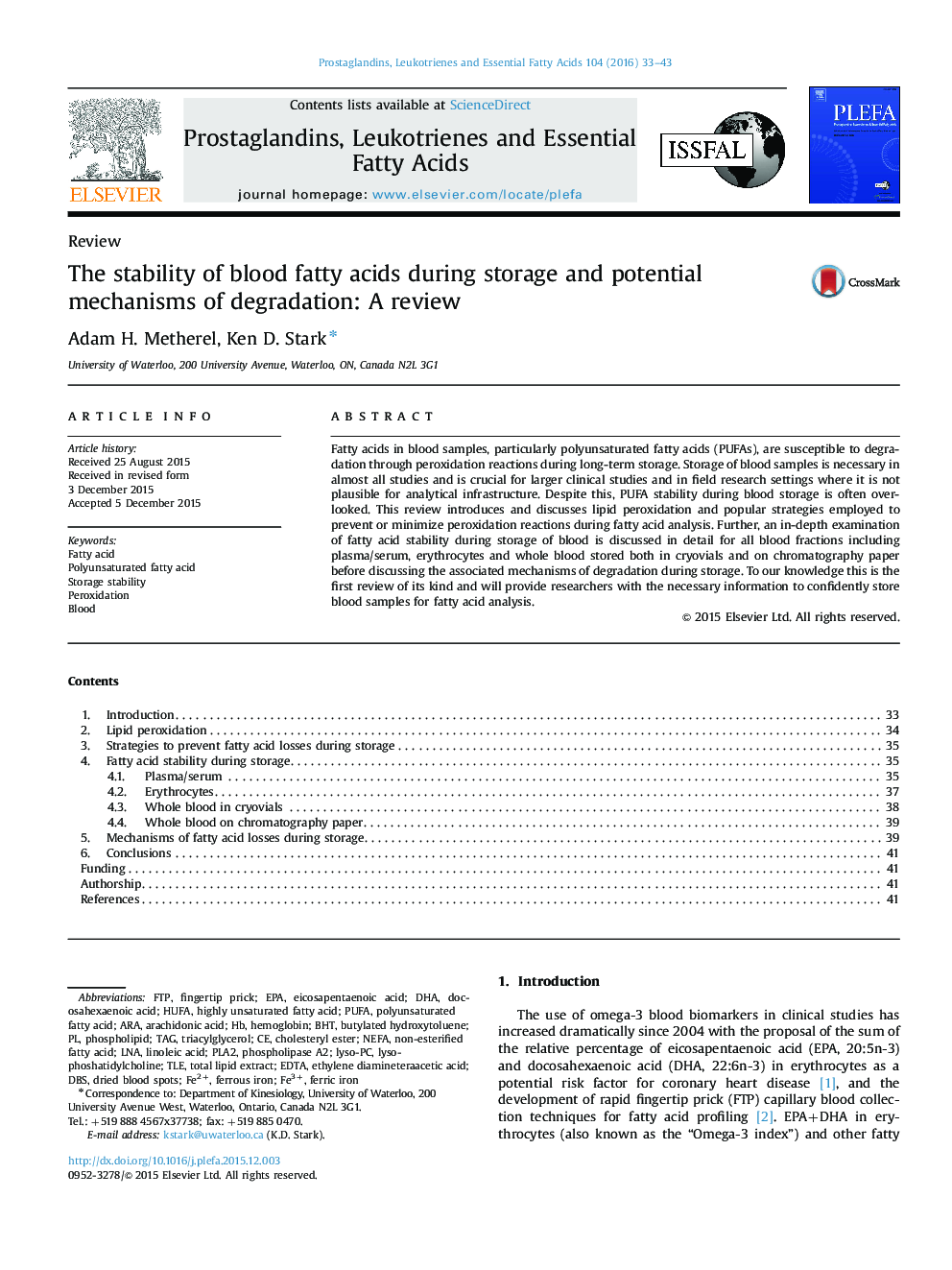| Article ID | Journal | Published Year | Pages | File Type |
|---|---|---|---|---|
| 2777459 | Prostaglandins, Leukotrienes and Essential Fatty Acids (PLEFA) | 2016 | 11 Pages |
Abstract
Fatty acids in blood samples, particularly polyunsaturated fatty acids (PUFAs), are susceptible to degradation through peroxidation reactions during long-term storage. Storage of blood samples is necessary in almost all studies and is crucial for larger clinical studies and in field research settings where it is not plausible for analytical infrastructure. Despite this, PUFA stability during blood storage is often overlooked. This review introduces and discusses lipid peroxidation and popular strategies employed to prevent or minimize peroxidation reactions during fatty acid analysis. Further, an in-depth examination of fatty acid stability during storage of blood is discussed in detail for all blood fractions including plasma/serum, erythrocytes and whole blood stored both in cryovials and on chromatography paper before discussing the associated mechanisms of degradation during storage. To our knowledge this is the first review of its kind and will provide researchers with the necessary information to confidently store blood samples for fatty acid analysis.
Keywords
PLA2EPADBSlyso-PCHUFABHTNEFAFTPTLELNAFe2+Fe3+phospholipase A2ferrous ironFerric ironEDTAArachidonic acidEicosapentaenoic aciddocosahexaenoic acidLinoleic acidFatty acidhighly unsaturated fatty acidNon-esterified fatty acidPolyunsaturated fatty acidPUFAtriacylglycerolTAG یا triacylglycerols Storage stabilityBloodARADHAPhospholipiddried blood spotsHemoglobinbutylated hydroxytoluenePeroxidationtotal lipid extractcholesteryl ester
Related Topics
Life Sciences
Biochemistry, Genetics and Molecular Biology
Clinical Biochemistry
Authors
Adam H. Metherel, Ken D. Stark,
